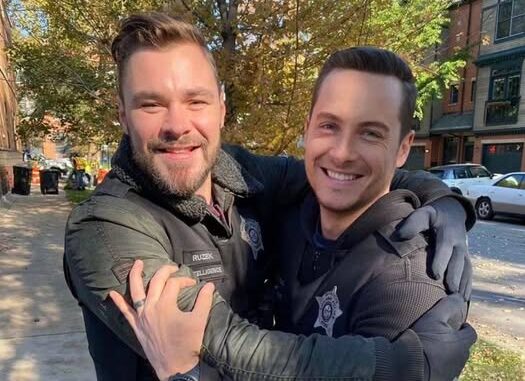
Fans of Chicago P.D. have long been intrigued by the dynamic between Sergeant Hank Voight (Jason Beghe) and Detective Hailey Upton (Tracy Spiridakos). Their professional respect, intense loyalty, and occasional sparks of tension have fueled speculation about a possible romantic connection. Yet, as much as some viewers might hope for a Voight-Chapman pairing, it remains highly unlikely—at least under the current framework of NBC and Dick Wolf’s Chicago P.D. universe.
The Nature of Voight and Chapman’s Relationship
Hank Voight is the hardened, morally complex head of the Intelligence Unit. He’s a man whose loyalty is unmatched, yet his methods often skirt the line between legality and vigilantism. Hailey Upton, on the other hand, is ambitious, skilled, and fiercely independent, with a sharp moral compass that sometimes clashes with Voight’s approach. Their relationship is built on trust, mutual respect, and a deep understanding of each other’s strengths and weaknesses—but it has always remained professional.
This is deliberate storytelling. Voight serves as a mentor and father figure, particularly after the departure of key characters like Antonio Dawson (Jon Seda). Any romantic involvement with Chapman would not only contradict established character arcs but also undermine the very foundation of the show’s moral and emotional core.
NBC and Dick Wolf’s Constraints
NBC and Dick Wolf have cultivated the One Chicago franchise with meticulous attention to continuity, character integrity, and audience expectations. Voight’s character has been shaped over 12-plus seasons as a leader with a complex personal life, including his relationship with his family, the trauma of his past, and his professional code. Introducing a romantic storyline between Voight and a current team member like Upton would require a fundamental rewriting of his character, which risks alienating longtime fans who have invested in his development.
Similarly, the procedural nature of Chicago P.D. focuses on crime-solving, internal team dynamics, and moral dilemmas rather than office romances or sensationalized relationships. While romantic subplots exist, they are generally reserved for age-appropriate pairings or storylines that naturally evolve without compromising character integrity.
Narrative and Ethical Considerations
Even if the network and producers were open to changing the dynamic, there are ethical considerations to account for. Voight is not just Chapman’s superior—he is her mentor, someone she looks up to and trusts implicitly. A romantic relationship would blur professional boundaries in a way that could send uncomfortable messages about power dynamics in the workplace. Chicago P.D. has historically tackled real-world issues with nuance and care, and such a pairing would likely clash with the show’s commitment to responsible storytelling.
The Strength of Their Platonic Bond
Instead of a romantic connection, the Voight-Chapman relationship thrives as a platonic but deeply emotional bond. Their dynamic allows for tension, drama, and compelling storytelling without crossing ethical or narrative lines. Fans can continue to enjoy their interactions—moments of mentorship, camaraderie, and even emotional vulnerability—without forcing a romantic angle that the story doesn’t support. In many ways, their platonic relationship is more realistic, compelling, and emotionally resonant than any forced romance could ever be. It reinforces themes of loyalty, trust, and professional respect, which are at the heart of Chicago P.D.
While fans may continue to speculate about a Voight-Chapman romance, the truth is that such a pairing is highly unlikely under the current creative and ethical framework of NBC and Dick Wolf’s Chicago P.D. universe. Voight and Chapman’s bond remains powerful, meaningful, and emotionally rich precisely because it does not cross into romance. Unless the network and production team decide to fundamentally change the rules of character development and storytelling—a move that seems improbable—this duo will remain an example of mentorship, trust, and platonic loyalty at its finest.
